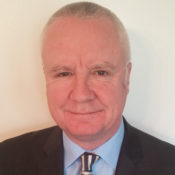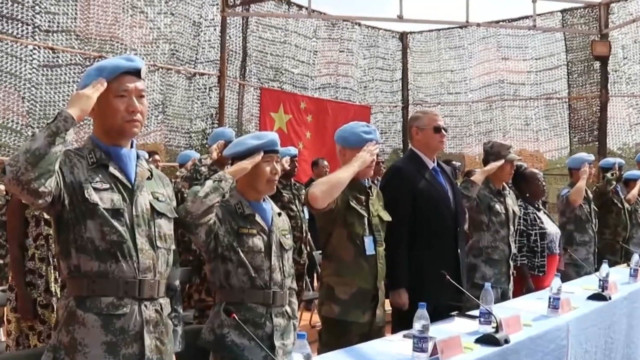The People’s Liberation Army is the biggest single provider of troops among the United Nations Security Council.
CGTN’s John Terrett reports.
We seldom, if ever, see the PLA or its generals at United Nations headquarters, but we do see Ambassador Liu Jieyi and Beijing’s team of diplomats everyday in the Security Council dealing with the most serious of world issues.
China has been President of the Council for the month of July, a job that comes around every fifteen months, but one that puts it in the driving seat of world affairs.
“Everyday there’s somebody in the world who should get an answer from the UN,” Matthew Russell Lee an independent journalist who reports on the Security Council for his website Inner City Press said. “They’ve made themselves bulletproof. When the Russian ambassador goes through…there have been times in the Syria conflict when people will say: ‘come on, you’re killing people!’ You don’t really hear that even on North Korea. It’s not just a rising power. It’s a risen power and the UN loves nothing more than to bow down to power.”
But China’s role at the U.N. is not limited to the so called ‘Permanent Five’ at headquarters in Manhattan. Its influence stretches way beyond the complex on the East Side of the city to where real people on the ground are caught up in conflict.
Among the Permanent Five of the Security Council, China is the second biggest funder of Blue Helmet peacekeepers and the People’s Liberation Army is the biggest supplier of personnel.
Chinese peacekeepers serve in South Sudan, Mali, Liberia, the Democratic Republic of Congo and Lebanon. According to the U.N., the total number of Chinese peacekeepers in June 2017 is 2,515. Some are policemen and other staff, but the number of actual PLA troops is over 2,200. Compare that to 804 French peacekeepers, 700 from the U.K. and fewer than a hundred each from the U.S. and Russia.
“We’ve been trying for many years to get the five permanent members not simply to decide the missions but who also contribute to the peacekeeping missions that are approve by the Security Council and China’s played a very important role in that,” U.N. Deputy Spokesman for the Secretary General, Farhan Haq said.
But the role of the Blue Helmets has changed over the years. Once it was separating two warring sides. Now, it’s far more complex, keeping the peace, often in the face of immense suffering from displaced people with healthcare and nutrition issues and trying to lay the ground for a return to civil society.
“I believe that gives China a unique understanding of what the conditions on the ground actually are. The ability to influence discussions in Council. Based on that understanding, it really gives China the ability to push to make sure there is a strong long-term strategy…to make sure that societies come out of the problems they’ve seen and do without the sort of assistance that UN peacekeeping provides,” New York University’s Center on International Cooperation Sarah Cliffe said.
 CGTN America
CGTN America

